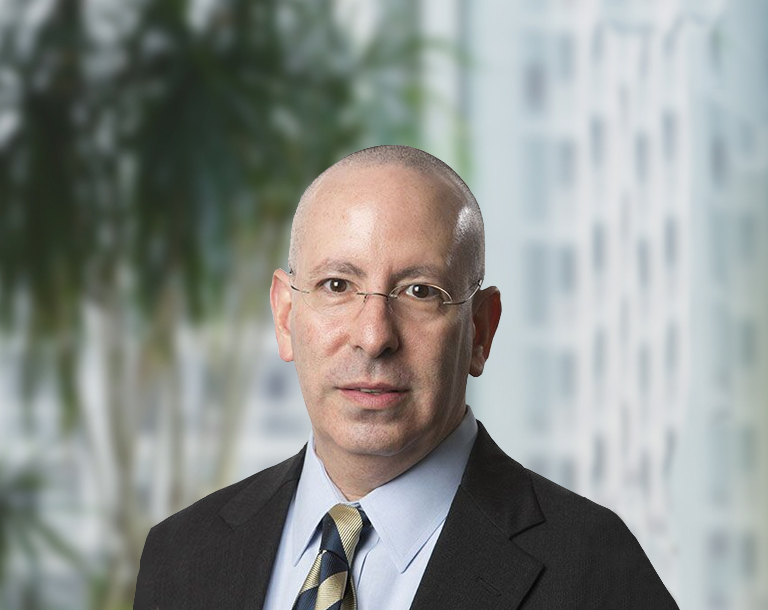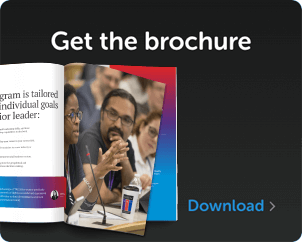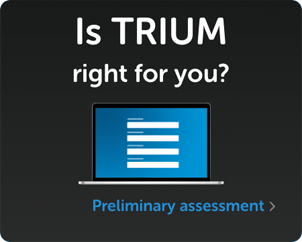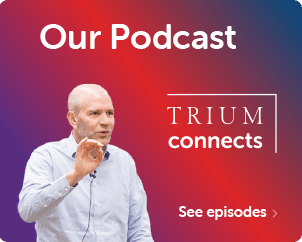

Steven Wolinsky
Steven had more than three decade’s experience in the medical field—both as a long-time practicing interventional cardiologist and in high-level management positions—when he felt a need to redirect his career to focus on healthcare leadership. “I believe the future of healthcare is through physician-run organizations, and that putting physicians’ voices in healthcare is vital to the country’s success in healthcare management,” he says. “I was intentional and curious about the best way to go about accomplishing that.” After consulting several colleagues and advisors about the career redirection he envisioned, he began scouting executive MBA programs.
Attending TRIUM is one of the best decisions I’ve ever made in my life, the experience was transformational. The way you look at the world coming in to the program is so much different than when you come out.
“I loved the fact that TRIUM had three of the best business schools in the world, and I was interested in having the opportunity to get that level of education and collaborate with the students the program attracts, who are talented, smart, creative, fun, successful, and from all around the world,” he says.
The program’s diverse cohort and international modules enabled Steven to see the parallels between healthcare and other major corporations, businesses, and industries. “In healthcare we live in a myopic view of world – particularly in terms of business and competition, business strategy, and marketing. One of the great things about the program is the global exposure and the cohort’s varied experience. You realize you are less unique than you think. Economic forces that other firms and corporations are facing are similar to what we’re facing in healthcare,” he says.
Finding parallels between healthcare and other industries was of particular value, as it offered a fresh understanding of large operations, particularly in the fundamentals of creating value in business. Steven explains: “The marketing courses in particular gave me a new language to consider: how do we think about healthcare differently? How can we satisfy the ever changing needs of our consumers and our patients? I really noticed a fundamental change in how I think about health care, business, the board’s responsibility, the responsibility to the patients, and how best we can make physicians’ voices heard.”
Perhaps the most enriching element of his experience, Steven says, was the discovery that the members of his cohort were—like him—dissatisfied with the status quo of their industries and careers, and were highly driven to change. “It’s a unique class—these are people who are already established and are enormously successful. Everyone in the program is there with the intention to make a change. I knew everyone was on the journey to do something great.”
Three quarters of the way through the program, Steven found an opportunity for the career redirection he sought, and accepted a position as Chief Medical Officer at PeaceHealth, a non-profit health system in the Pacific Northwest of the United States, “The program was pivotal in helping me make a decision aligned to my life’s goals and future aspirations. Without a doubt,” he says.
At PeaceHealth, Steven personally oversees more than 800 physicians and providers at four of the organization’s ten medical centers. Vital to his work is the macro-economic and global perspective he gained at TRIUM, which helps him understand the drivers affecting his industry, so that he can focus on what he says is the most vital question: “How do we continue to evolve, expand, change and drive health care quality? How do we deliver the very best care to each and every patient each and every time?”
Quick-fire questions:
- Proudest professional moment? Being elected Chief of Staff by my peers.
- If I had a month off work to do anything I wanted, I would: Spend time with my family.
- If I wasn’t in this profession, I would be: A musician
- I define “professional success” as: Making a difference.





